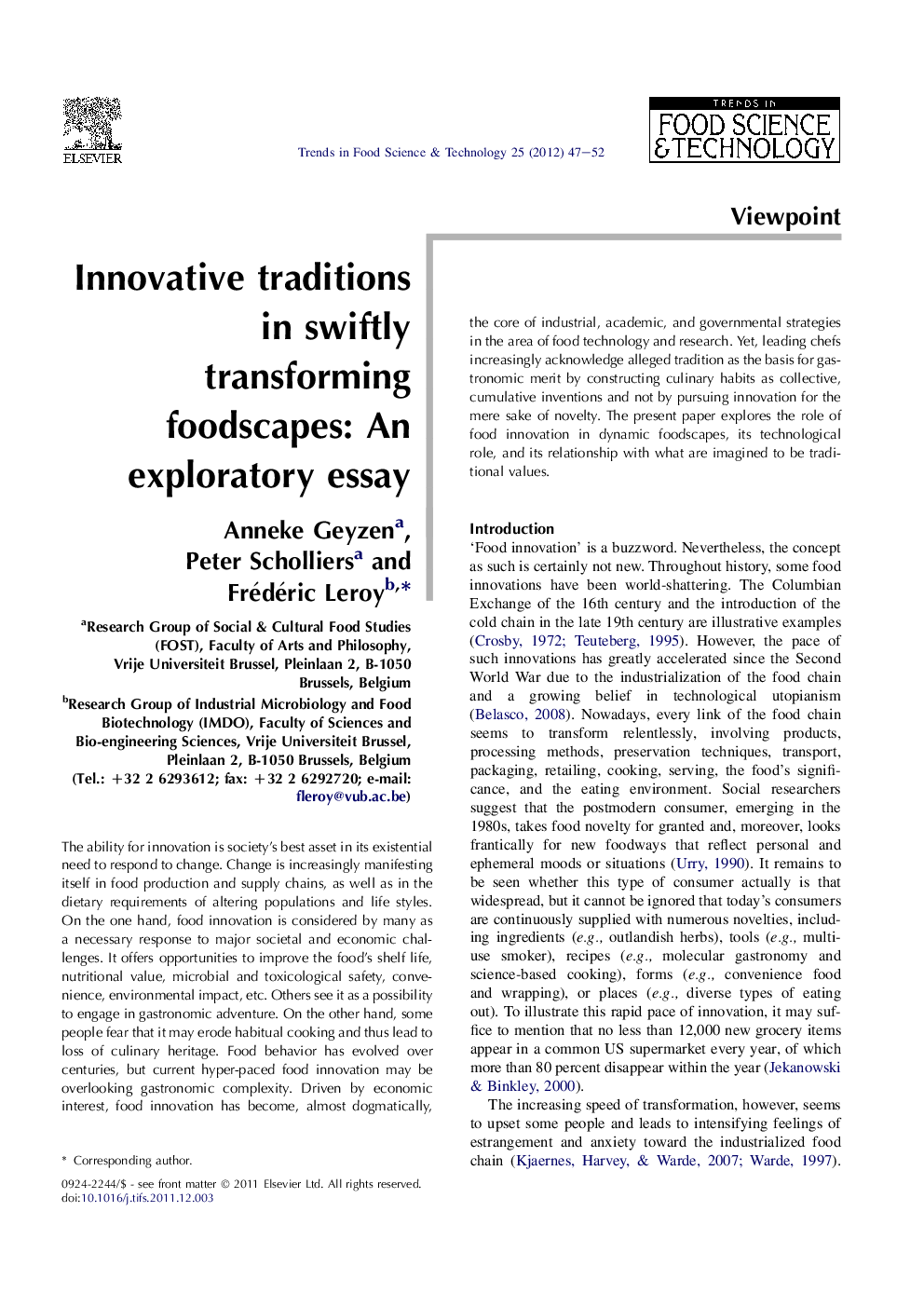| Article ID | Journal | Published Year | Pages | File Type |
|---|---|---|---|---|
| 2098949 | Trends in Food Science & Technology | 2012 | 6 Pages |
The ability for innovation is society’s best asset in its existential need to respond to change. Change is increasingly manifesting itself in food production and supply chains, as well as in the dietary requirements of altering populations and life styles. On the one hand, food innovation is considered by many as a necessary response to major societal and economic challenges. It offers opportunities to improve the food’s shelf life, nutritional value, microbial and toxicological safety, convenience, environmental impact, etc. Others see it as a possibility to engage in gastronomic adventure. On the other hand, some people fear that it may erode habitual cooking and thus lead to loss of culinary heritage. Food behavior has evolved over centuries, but current hyper-paced food innovation may be overlooking gastronomic complexity. Driven by economic interest, food innovation has become, almost dogmatically, the core of industrial, academic, and governmental strategies in the area of food technology and research. Yet, leading chefs increasingly acknowledge alleged tradition as the basis for gastronomic merit by constructing culinary habits as collective, cumulative inventions and not by pursuing innovation for the mere sake of novelty. The present paper explores the role of food innovation in dynamic foodscapes, its technological role, and its relationship with what are imagined to be traditional values.
► Food innovation is a necessary response to societal and economic challenges. ► Economical reasons and marketing strategies currently predominate. ► A myriad of technological innovations and resulting food products have been developed. ► Some fear food innovation may lead to loss of culinary heritage. ► Hyper-paced innovation leads to estrangement, resulting in a search for the ‘familiar’ and (re)emergence of ‘tradition’.
